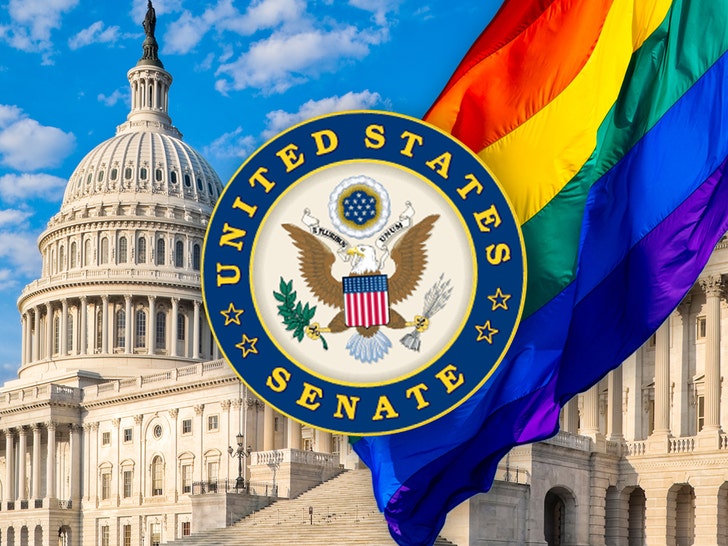Same-Sex Marriage Bill Passes Senate with Huge Republican Support
Landmark Same-Sex Marriage Bill Wins Overwhelming Bipartisan Senate Support ... Protection on the Horizon
Gay marriage, which is on the U.S. Supreme Court's chopping block, may have gotten a reprieve, because the United States Senate just voted to create significant same-sex marriage protections into federal law ... and even a number of conservatives gave a thumbs up.
The vote was lopsided -- 61-to-36 -- with 12 Republican senators voting in favor during Tuesday night's vote. Minority Leader Mitch McConnell was NOT among them.
The House of Representatives has already passed a bill protecting gay marriage, but the Senate added a provision that religious organizations won't have to open their door for gay marriage. The bill now goes back to the House to approve the change.
Love is love and Americans should have the right to marry the person they love. Today’s bipartisan Senate vote gets us closer to protecting that right.
— President Biden (@POTUS) November 16, 2022 @POTUS
The Respect for Marriage Act protects all couples under law – I urge Congress to send the bill to my desk so I can make it law.
The House is expected to approve the change and it will then go to Biden's desk for signature. Biden said earlier this month ... "Love is love, and Americans should have the right to marry the person they love."
The bill does not create a mandate that all states must legalize same-sex marriage. What it does is require every state to recognize gay marriages performed in other states. So, Alabama does not allow gay people to marry within its borders, but if 2 gay people got married in California and moved to Alabama, they would have all the legal protections that a straight couple would have.
The clock has been ticking ... Republicans will control the house in January, so the fate of the bill would be dicey ... and that's why there's a swift move to sign the bill.
The wild card ... the Supreme Court could decide issues of marriage should be left entirely to the states and not the federal government, so there's a chance the conservative majority could undo a federal marriage protection law.








